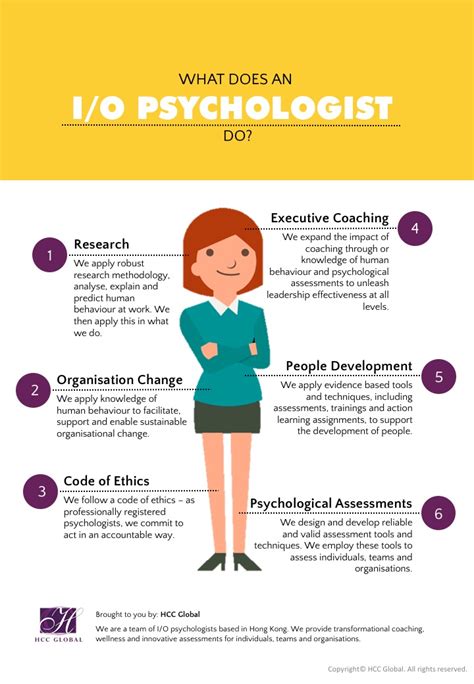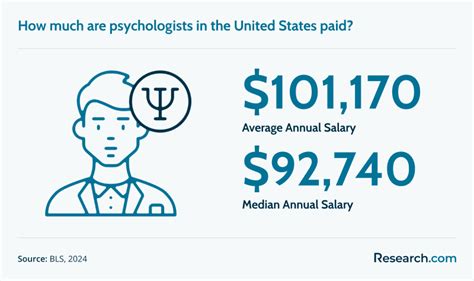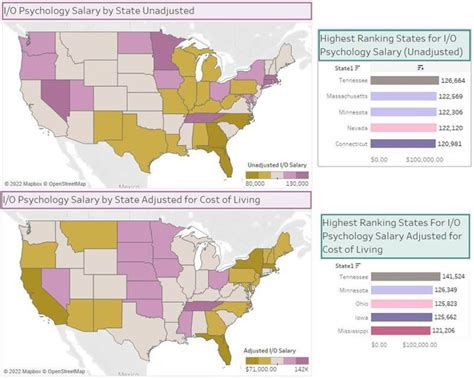Industrial-Organizational (I-O) Psychology stands at the fascinating intersection of human behavior and the business world. It’s a field that offers not only intellectually stimulating work but also significant financial rewards. If you're exploring this career, you’re likely wondering about your potential earnings. The short answer is that the earning potential for I-O psychologists is substantial, with many professionals earning well into the six figures.
This detailed guide will break down everything you need to know about an I-O psychology salary, from national averages to the key factors that can maximize your income.
What Does an I-O Psychologist Do?

Before we dive into the numbers, let’s clarify the role. An I-O psychologist is essentially a scientist of the workplace. They apply psychological principles and research methods to solve problems in business and organizational settings. Their goal is to improve performance, communication, professional satisfaction, and safety for all employees.
Key responsibilities often include:
- Talent Management: Developing systems for recruiting, hiring, and onboarding new employees.
- Training & Development: Designing and evaluating employee training programs.
- Performance Assessment: Creating fair and effective performance review systems.
- Organizational Development: Improving company culture, structure, and processes.
- Work-Life Balance: Creating policies and environments that enhance employee well-being.
Average I-O Psychology Salary

The salary for an I-O psychologist is one of the highest among all psychology specializations. The data from leading authoritative sources confirms this strong earning potential.
According to the U.S. Bureau of Labor Statistics (BLS), the median annual wage for industrial-organizational psychologists was $147,420 in May 2023. The lowest 10 percent earned less than $76,170, while the highest 10 percent earned more than $214,300.
Data from popular salary aggregators provides a similar, yet varied, picture based on their unique data sets:
- Salary.com reports that the median salary for an Industrial Psychologist in the U.S. is around $135,101, with a typical range falling between $113,875 and $159,331.
- Payscale shows an average base salary of approximately $92,500, but this figure is heavily influenced by years of experience and may include more entry-level positions in its average.
- Glassdoor reports a total pay average of around $125,000 per year for I-O Psychologists, which includes base pay and additional compensation like bonuses.
The takeaway is clear: while the exact average varies slightly by source, an I-O psychologist's salary is comfortably in the six-figure range, with significant room for growth.
Key Factors That Influence Salary

Your salary isn't a fixed number; it's a dynamic figure influenced by several critical factors. Understanding these can help you strategically navigate your career path for maximum earning potential.
### Level of Education
In I-O psychology, education is arguably the most significant determinant of your starting salary and long-term career ceiling.
- Master's Degree: A Master's degree is the typical entry-level requirement for most applied I-O roles. With a Master's, you can work in areas like human resources, personnel analysis, training, and consulting. It provides a strong foundation and access to well-paying jobs.
- Doctorate (Ph.D. or Psy.D.): A doctorate opens the door to the highest levels of practice and pay. It is often required for senior consulting roles, high-level research positions, academic professorships, and is necessary to use the title "Psychologist" in most states. The Society for Industrial and Organizational Psychology (SIOP) consistently reports in its income surveys that Ph.D. holders earn significantly more than their Master's-level counterparts—often a difference of $30,000 to $50,000 or more per year.
### Years of Experience
As with any profession, experience pays. Your responsibilities and compensation will grow as you move from an entry-level analyst to a senior director or partner.
- Entry-Level (0-3 years): Professionals with a Master's degree can expect to earn between $70,000 and $95,000. They typically work in roles like HR Analyst, Talent Management Specialist, or Research Associate.
- Mid-Career (5-10 years): With solid experience, salaries often climb to $110,000 - $150,000. Roles at this stage include I-O Consultant, HR Manager, or Organizational Development Manager.
- Senior-Level (15+ years): Highly experienced I-O psychologists, especially those with a Ph.D. in leadership roles (e.g., Director of People Analytics, VP of Talent, Partner at a consulting firm), can command salaries of $160,000 to well over $250,000.
### Geographic Location
Where you work matters. Salaries for I-O psychologists vary significantly by state and metropolitan area due to differences in demand and cost of living. According to BLS data, the top-paying states for I-O psychologists include:
- California
- Virginia
- Massachusetts
- Oregon
- New Jersey
Metropolitan areas with major corporate headquarters, tech hubs, and government contractors—like San Jose, CA, Boston, MA, and the Washington, D.C. area—tend to offer the highest salaries.
### Company Type
The type of organization you work for has a major impact on your compensation structure.
- Private Sector (Consulting): This is often the most lucrative path. Working for a management consulting firm (e.g., Deloitte, Korn Ferry) or a specialized I-O consulting boutique can lead to very high salaries and performance-based bonuses.
- Private Sector (In-House): Large corporations (especially in tech, finance, and pharmaceuticals) hire I-O psychologists for internal roles. Companies like Google, Amazon, and Johnson & Johnson pay competitive salaries and often offer excellent benefits, including stock options.
- Government: Federal, state, and local government agencies hire I-O psychologists for roles in personnel selection, training, and performance management. While base salaries may be slightly lower than in the top private sector jobs, government positions offer excellent job security and benefits.
- Academia: For Ph.D. holders, working as a professor involves teaching and research. Academic salaries vary widely by the institution's prestige and funding but are generally lower than top-tier consulting or corporate roles.
### Area of Specialization
Within the broad field of I-O psychology, some niches are in higher demand and can command higher pay.
- Selection & Assessment: Designing legally defensible and effective hiring tools is a critical and highly valued skill.
- Leadership Development & Executive Coaching: Working directly with senior leaders to enhance their effectiveness is a premium, high-paying service.
- People Analytics & Data Science: This is a hot, emerging field. Professionals who can blend I-O principles with advanced statistical analysis to derive data-driven insights about the workforce are in extremely high demand.
- Change Management: Experts who can guide organizations through major transitions like mergers, acquisitions, or restructuring are crucial and well-compensated.
Job Outlook

The future for I-O psychologists is bright. The BLS projects employment for industrial-organizational psychologists will grow by 6% from 2022 to 2032, which is faster than the average for all occupations.
This growth is fueled by an increasing recognition among businesses that understanding employee behavior is key to productivity, innovation, and profitability. As companies continue to compete for top talent and strive to create more efficient and positive work environments, the demand for the expertise of I-O psychologists will only grow.
Conclusion

A career in Industrial-Organizational Psychology is a powerful choice for those with a passion for both psychology and the complexities of the modern workplace. It offers a path that is not only fulfilling and impactful but also financially rewarding.
Here are the key takeaways for your earning potential:
- High Earning Potential: The median salary is well over $140,000, with top earners exceeding $200,000.
- Education is Key: A Ph.D. provides the highest earning potential, but a Master's degree still offers access to a lucrative career.
- Experience Builds Wealth: Your salary will grow significantly as you gain experience and move into leadership roles.
- Be Strategic: To maximize your salary, consider high-paying locations, target private-sector consulting or large corporate roles, and develop skills in high-demand specializations like people analytics or executive development.
For anyone considering this field, the data paints a clear picture: investing in an I-O psychology education can lead to a stable, in-demand, and prosperous career.
